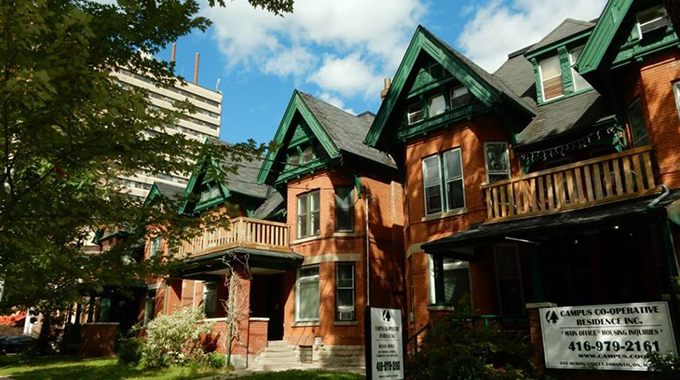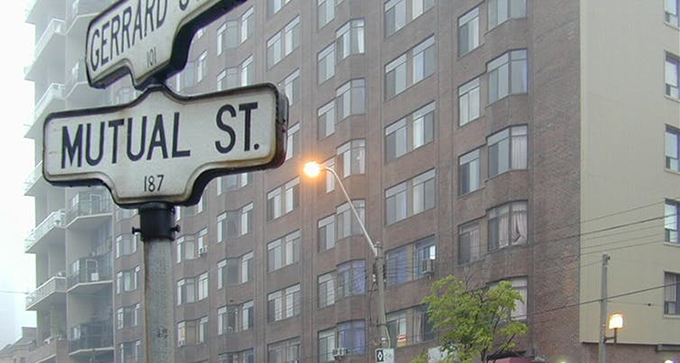 Even before COVID-19, things weren’t going all that well on post-secondary campuses across Canada. Research before and during the pandemic has revealed that food and housing insecurity are a major problem for many students and staff.
There has been an acceleration towards commercial and branded spaces on public university campuses, which has come at the detriment of the very population these institutions are intended to serve. Whether through corporatizing library, housing or food services, the profits accrued by these large commercial interests have been extracted from increasingly indebted and impoverished students.
As we emerge from the pandemic, those institutions with substantive endowments and high-paying international students may yet be able to return to business as usual. But relying on international students for revenue is a dangerous strategy as many universities in Australia have discovered. For many Canadian institutions, and students, post-pandemic business as usual may simply not be sustainable.
Instead of rushing back into a competitive global race to recruit students and achieve high university rankings, there is another way that could mean a more affordable education for students and that more money remains invested in the education system: co-operatives.
Even before COVID-19, things weren’t going all that well on post-secondary campuses across Canada. Research before and during the pandemic has revealed that food and housing insecurity are a major problem for many students and staff.
There has been an acceleration towards commercial and branded spaces on public university campuses, which has come at the detriment of the very population these institutions are intended to serve. Whether through corporatizing library, housing or food services, the profits accrued by these large commercial interests have been extracted from increasingly indebted and impoverished students.
As we emerge from the pandemic, those institutions with substantive endowments and high-paying international students may yet be able to return to business as usual. But relying on international students for revenue is a dangerous strategy as many universities in Australia have discovered. For many Canadian institutions, and students, post-pandemic business as usual may simply not be sustainable.
Instead of rushing back into a competitive global race to recruit students and achieve high university rankings, there is another way that could mean a more affordable education for students and that more money remains invested in the education system: co-operatives.
Democratic ways of living
Co-operatives are businesses owned by the members. Principles of co-ops include reinvesting profits in the co-op, supporting other co-ops, education and training for members, equity and community. Co-ops provide a place to learn about more democratic and equitable ways of living, working and learning together — and also offer ways to re-imagine alternative business models. My hope is that universities would offer support for students, staff and faculty to develop co-op housing, co-op grocery stores, cafes and more on campuses. Back in 1936, during the Great Depression, students at the University of Toronto created a housing co-operative that still exists today. Instead of rushing back into a competitive global race to recruit students and achieve high university rankings, there is another way that could mean a more affordable education for students and that more money remains invested in the education system: co-operatives.Democratic ways of living
Co-operatives are businesses owned by the members. Principles of co-ops include reinvesting profits in the co-op, supporting other co-ops, education and training for members, equity and community. Co-ops provide a place to learn about more democratic and equitable ways of living, working and learning together — and also offer ways to re-imagine alternative business models. My hope is that universities would offer support for students, staff and faculty to develop co-op housing, co-op grocery stores, cafes and more on campuses. Back in 1936, during the Great Depression, students at the University of Toronto created a housing co-operative that still exists today. Extensive research points to co-ops being better able to withstand economic downturns; they can be more efficient and sustainable than other economic organization forms. The International Cooperative Alliance (ICA) reports that 1.2 billion people on the planet are part of a co-operative, and 10 per cent of the world’s workforce are employed through co-operatives. A study commissioned by the United Nations concluded that “combined the global co-operative economy is two times larger than France’s economy and places right behind Germany’s economy as the fifth largest economic unit if it were a united country.” Co-ops do fail, as we saw with Mountain Equipment Coop, but they do fare better economically and in creating equitable conditions than other forms of business.Co-op university
Mondragon University is a co-operative university in Spain that has 4,000 students. Within the university, each faculty “with a legal co-operative structure is built upon a shared project with common co-operative principles such as … co-operation, democracy and solidarity.” The university is part of Mondragon Corporation which includes 96 co-operative businesses that employ over 70,000 people. While other companies in Spain were laying off workers, the Mondragon co-ops managed to keep their workers on the payroll. A principle of co-ops is to support other co-ops — a co-op among co-ops model applies so they can take advantage of large scale purchasing, for example, but also govern themselves in ways that maintain autonomy. Crises bring renewed interest in co-operatives. In the United Kingdom, higher education co-operatives and partners have made progress towards creating a co-operative university. Co-operative food stores and cafes save money through bulk buying while giving students more say in governance and access to quality food. Co-op bookstores aim to provide people with reasonable prices and opportunities to be part of the governance of the co-op. In Toronto, the Neill-Wycik Co-operative College opened for students in 1970 three years after its 1967 incorporation. Today it offers affordable housing to 750 post-secondary students from several institutions and has operated as a hotel in summers. The co-op also provides educational opportunities for participating in democratic governance. For post-secondary institutions emerging from the isolation of the pandemic with the knowledge that “business as usual” isn’t going to happen, promoting and encouraging co-operative ventures is one way to contribute to a more resilient society in the face of multiple global crises.
Neill Wycik Co-operative College offers affordable housing to post-secondary students in Toronto. Here, the tower on Gerrard St. at Mutual St. (Hobvias Sudoneighm/Flickr)